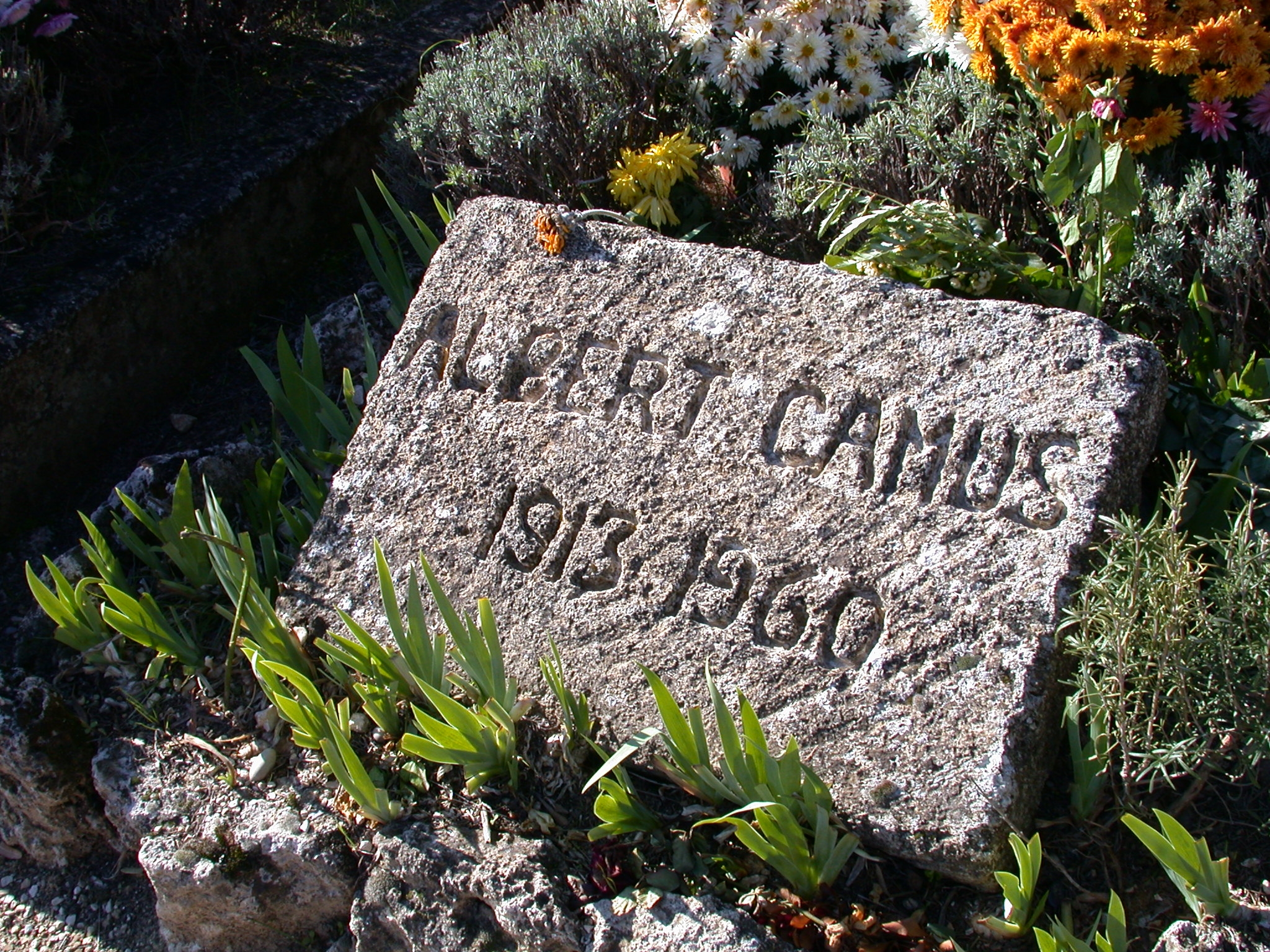|
Nausea (novel)
''Nausea'' () is a philosophical novel by the Existentialism, existentialist philosopher Jean-Paul Sartre, published in 1938. It is Sartre's first novel. The novel takes place in 'Bouville' (homophone of ''Boue-ville'', literally, 'Mud town') a town similar to Le Havre. It comprises the thoughts and subjective experiences—in a personal diary format—of Antoine Roquentin, a melancholic and socially isolated intellectual who is residing in Bouville ostensibly for the purpose of completing a biography on a historical figure. Roquentin's growing alienation and disillusionment coincide with an increasingly intense experience of revulsion, which he calls "the nausea", in which the people and things around him seem to lose all their familiar and recognizable qualities. Sartre's original title for the novel before publication was ''Melancholia''. The novel has been translated into English by Lloyd Alexander as ''The Diary of Antoine Roquentin'' and by Robert Baldick as ''Nausea''. Ch ... [...More Info...] [...Related Items...] OR: [Wikipedia] [Google] [Baidu] |
Lloyd Alexander
Lloyd Chudley Alexander (January 30, 1924 – May 17, 2007) was an American author of more than 40 books, primarily fantasy novels for children's literature, children and young adults. Over his seven-decade career, Alexander wrote 48 books, and his work has been translated into 20 languages. His most famous work is ''The Chronicles of Prydain'', a series of five high fantasy novels whose conclusion, ''The High King'', was awarded the 1969 Newbery Medal for excellence in American children's literature. He won U.S. National Book Awards in 1971 and 1982."National Book Awards – 1971" National Book Foundation (NBF). Retrieved 2012-02-22. [...More Info...] [...Related Items...] OR: [Wikipedia] [Google] [Baidu] |
Albert Camus
Albert Camus ( ; ; 7 November 1913 – 4 January 1960) was a French philosopher, author, dramatist, journalist, world federalist, and political activist. He was the recipient of the 1957 Nobel Prize in Literature at the age of 44, the second-youngest recipient in history. His works include ''The Stranger (Camus novel), The Stranger'', ''The Plague (novel), The Plague'', ''The Myth of Sisyphus'', ''The Fall (Camus novel), The Fall'' and ''The Rebel (book), The Rebel''. Camus was born in French Algeria to ''pied-noir'' parents. He spent his childhood in a poor neighbourhood and later studied philosophy at the University of Algiers. He was in Paris when the Battle of France, Germans invaded France during World War II in 1940. Camus tried to flee but finally joined the French Resistance where he served as editor-in-chief at ''Combat (newspaper), Combat'', an outlawed newspaper. After the war, he was a celebrity figure and gave many lectures around the world. He married twice ... [...More Info...] [...Related Items...] OR: [Wikipedia] [Google] [Baidu] |
Phenomenology (philosophy)
Phenomenology is a philosophical study and movement largely associated with the early 20th century that seeks to Subjectivity_and_objectivity_(philosophy), objectively investigate the nature of subjective, consciousness, conscious experience. It attempts to describe the universal features of consciousness while avoiding assumptions about the external world, aiming to describe Phenomenon, phenomena as they appear, and to explore the meaning and significance of lived experience. This approach, while philosophical, has found many applications in qualitative research across different scientific disciplines, especially in the social sciences, humanities, Phenomenology (psychology), psychology, and cognitive science, but also in fields as diverse as health sciences, Phenomenology (architecture), architecture, and Human–computer interaction, human-computer interaction, among many others. The application of phenomenology in these fields aims to gain a deeper understanding of subjectiv ... [...More Info...] [...Related Items...] OR: [Wikipedia] [Google] [Baidu] |
Freedom Of Will
Free will is generally understood as the capacity or ability of people to (a) choose between different possible courses of action, (b) exercise control over their actions in a way that is necessary for moral responsibility, or (c) be the ultimate source or originator of their actions. There are different theories as to its nature, and these aspects are often emphasized differently depending on philosophical tradition, with debates focusing on whether and how such freedom can coexist with determinism, divine foreknowledge, and other constraints. Free will is closely linked to the concepts of moral responsibility, praise, culpability, and other judgements which apply only to actions that are freely chosen. It is also connected with the concepts of advice, persuasion, deliberation, and prohibition. Traditionally, only actions that are freely willed are seen as deserving credit or blame. Whether free will exists and the implications of whether it exists or not constitute some o ... [...More Info...] [...Related Items...] OR: [Wikipedia] [Google] [Baidu] |
Metaphysics
Metaphysics is the branch of philosophy that examines the basic structure of reality. It is traditionally seen as the study of mind-independent features of the world, but some theorists view it as an inquiry into the conceptual framework of human understanding. Some philosophers, including Aristotle, designate metaphysics as first philosophy to suggest that it is more fundamental than other forms of philosophical inquiry. Metaphysics encompasses a wide range of general and abstract topics. It investigates the nature of existence, the features all entities have in common, and their division into categories of being. An influential division is between particulars and universals. Particulars are individual unique entities, like a specific apple. Universals are general features that different particulars have in common, like the color . Modal metaphysics examines what it means for something to be possible or necessary. Metaphysicians also explore the concepts of space, time, ... [...More Info...] [...Related Items...] OR: [Wikipedia] [Google] [Baidu] |
Writing Style
In literature, writing style is the manner of expressing thought in language characteristic of an individual, period, school, or nation. Thus, style is a term that may refer, at one and the same time, to singular aspects of an individual's writing habits or a particular document and to aspects that go well-beyond the individual writer. Beyond the essential elements of spelling, grammar, and punctuation, writing style is the choice of words, sentence structure, and paragraph structure, used to convey the meaning effectively. The former are referred to as ''rules'', ''elements'', ''essentials'', ''mechanics'', or ''handbook''; the latter are referred to as ''style'', or ''rhetoric''. The rules are about ''what'' a writer does; style is about ''how'' the writer does it. While following the rules drawn from established English usage, a writer has great flexibility in how to express a concept. Some have suggested that the point of writing style is to: * express the message to the reade ... [...More Info...] [...Related Items...] OR: [Wikipedia] [Google] [Baidu] |
General Relativity
General relativity, also known as the general theory of relativity, and as Einstein's theory of gravity, is the differential geometry, geometric theory of gravitation published by Albert Einstein in 1915 and is the current description of gravitation in modern physics. General theory of relativity, relativity generalizes special relativity and refines Newton's law of universal gravitation, providing a unified description of gravity as a geometric property of space and time in physics, time, or four-dimensional spacetime. In particular, the ''curvature of spacetime'' is directly related to the energy and momentum of whatever is present, including matter and radiation. The relation is specified by the Einstein field equations, a system of second-order partial differential equations. Newton's law of universal gravitation, which describes gravity in classical mechanics, can be seen as a prediction of general relativity for the almost flat spacetime geometry around stationary mass ... [...More Info...] [...Related Items...] OR: [Wikipedia] [Google] [Baidu] |
Albert Einstein
Albert Einstein (14 March 187918 April 1955) was a German-born theoretical physicist who is best known for developing the theory of relativity. Einstein also made important contributions to quantum mechanics. His mass–energy equivalence formula , which arises from special relativity, has been called "the world's most famous equation". He received the 1921 Nobel Prize in Physics for . Born in the German Empire, Einstein moved to Switzerland in 1895, forsaking his German citizenship (as a subject of the Kingdom of Württemberg) the following year. In 1897, at the age of seventeen, he enrolled in the mathematics and physics teaching diploma program at the Swiss ETH Zurich, federal polytechnic school in Zurich, graduating in 1900. He acquired Swiss citizenship a year later, which he kept for the rest of his life, and afterwards secured a permanent position at the Swiss Patent Office in Bern. In 1905, he submitted a successful PhD dissertation to the University of Zurich. In 19 ... [...More Info...] [...Related Items...] OR: [Wikipedia] [Google] [Baidu] |
Classical Mechanics
Classical mechanics is a Theoretical physics, physical theory describing the motion of objects such as projectiles, parts of Machine (mechanical), machinery, spacecraft, planets, stars, and galaxies. The development of classical mechanics involved Scientific Revolution, substantial change in the methods and philosophy of physics. The qualifier ''classical'' distinguishes this type of mechanics from physics developed after the History of physics#20th century: birth of modern physics, revolutions in physics of the early 20th century, all of which revealed limitations in classical mechanics. The earliest formulation of classical mechanics is often referred to as Newtonian mechanics. It consists of the physical concepts based on the 17th century foundational works of Sir Isaac Newton, and the mathematical methods invented by Newton, Gottfried Wilhelm Leibniz, Leonhard Euler and others to describe the motion of Physical body, bodies under the influence of forces. Later, methods bas ... [...More Info...] [...Related Items...] OR: [Wikipedia] [Google] [Baidu] |
Isaac Newton
Sir Isaac Newton () was an English polymath active as a mathematician, physicist, astronomer, alchemist, theologian, and author. Newton was a key figure in the Scientific Revolution and the Age of Enlightenment, Enlightenment that followed. His book (''Mathematical Principles of Natural Philosophy''), first published in 1687, achieved the Unification of theories in physics#Unification of gravity and astronomy, first great unification in physics and established classical mechanics. Newton also made seminal contributions to optics, and Leibniz–Newton calculus controversy, shares credit with German mathematician Gottfried Wilhelm Leibniz for formulating calculus, infinitesimal calculus, though he developed calculus years before Leibniz. Newton contributed to and refined the scientific method, and his work is considered the most influential in bringing forth modern science. In the , Newton formulated the Newton's laws of motion, laws of motion and Newton's law of universal g ... [...More Info...] [...Related Items...] OR: [Wikipedia] [Google] [Baidu] |
Stream Of Consciousness (narrative Mode)
In literary criticism, stream of consciousness is a narrative mode or method that attempts "to depict the multitudinous thoughts and feelings which pass through the mind" of a narrator. It is usually in the form of an interior monologue which is disjointed or has irregular punctuation. The term was first used in 1855 and was first applied to a literary technique in 1918. While critics have pointed to various literary precursors, it was not until the 20th century that this technique was fully developed by modernist writers such as Marcel Proust, James Joyce, Dorothy Richardson and Virginia Woolf. Stream of consciousness narratives continue to be used in modern prose and the term has been adopted to describe similar techniques in other art forms such as poetry, songwriting and film. Origin of term Alexander Bain used the term in 1855 in the first edition of ''The Senses and the Intellect'', when he wrote, "The concurrence of Sensations in one common stream of consciousnes ... [...More Info...] [...Related Items...] OR: [Wikipedia] [Google] [Baidu] |
François-René De Chateaubriand
François-René, vicomte de Chateaubriand (4 September 1768 – 4 July 1848) was a French writer, politician, diplomat and historian who influenced French literature of the nineteenth century. Descended from an old aristocratic family from Brittany, Chateaubriand was a royalist by political disposition. In an age when large numbers of intellectuals turned against the Church, he authored the ''The Genius of Christianity, Génie du christianisme'' in defense of the Catholic faith. His works include the autobiography ''Mémoires d'Outre-Tombe'' (''Memoirs from Beyond the Grave''), published posthumously in 1849–1850. Historian Peter Gay said that Chateaubriand saw himself as the greatest lover, the greatest writer, and the greatest philosopher of his age. Gay states that Chateaubriand "dominated the literary scene in France in the first half of the nineteenth century". Biography Early years and exile Born in Saint-Malo on 4 September 1768, the last of ten children, Chate ... [...More Info...] [...Related Items...] OR: [Wikipedia] [Google] [Baidu] |









